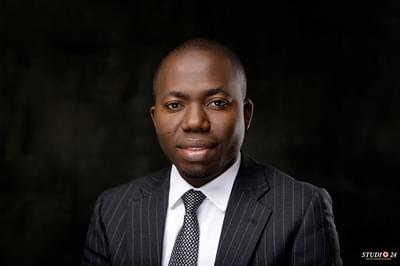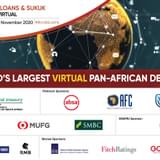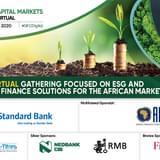Bonds & Loans: What are the treasury’s main objectives and challenges at the moment?
Idris Olufowobi: From a funding perspective, as we speak, Forte Upstream Services does not have any facilities with any bank, and my general position is that leverage should remain as low as possible. A number of companies in Nigeria essentially finance themselves through a combination of overdraft facilities and short-term loans or commercial paper, when you are securing long-term facilities for short-term contracts, the challenge then revolves around managing your collections – so we currently have a strong focus on managing our average collection period and average payment period.
Bonds & Loans: Equipment and import restrictions have been tough on some companies, but in some cases slightly easier on those with foreign-currency receivables. When you need to secure equipment from outside the country or parts to support projects, how does that influence your strategy around how you bring those things into the country and how you finance the acquisition or importation of goods?
Idris Olufowobi: If you can’t source it locally, then you must go abroad, which can create complications – particularly on the funding side. Some of these restrictions are in place to promote local content within Nigeria. Where we now look at economic opportunities, we would work with exploration and production companies on a contract basis, and the contract period is usually about two to three years. We want to exercise an asset-light strategy, and only when it’s not accessible locally do we then go ahead and import the materials into the country. So, the best approach for us would be to seek support from a lender in financing the acquisition of that material, which would likely be achieved by securing a commitment from relevant exploration & production companies. I’m not going to start incurring interest until I understand my receivables profile – and one of our highest priorities is to manage our interest rate expenses.
One thing we try to focus on is hedging our FX exposure, whether to financial institutions or to vendors, and that includes how we source equipment. In terms of equipment, we try as much as possible not to carry huge assets that would then become a liability thereafter. A contract with exploration and production companies tends to be short-term, maybe two-three years; for that period of time, our preference would be to not acquire an asset that will only be used to service that particular contract which we are not sure of the renewal.
Let’s say Chevron wanted a vessel to help bring clients from an offshore rig back to port. Instead of buying the vessel, I would rather look for another service provider or local leasing company that could rent it to me. Availability of these services from local vendors is high.
Bonds & Loans: If availability of local vendors and service providers is always high, is that because of oversupply? To what extent are oil prices a driver here?
Idris Olufowobi: For local vendors that hold the assets, they need to ensure asset utilisation is high. Whether the price of crude drops or rises, operations must continue; I can’t own such assets and keep them idle because I would need to recover whatever I invest into this kind of equipment.
Bonds & Loans: Earlier this year, Forte Oil took the decision to restructure the business and divest some of its assets and divisions. What was the reasoning for the move?
Idris Olufowobi: Forte Oil has historically participated in a wide range of activities – including downstream oil retail, upstream servicing, and power generation. But to ensure these divisions were most focused on their core activities, the Board of Directors took the decision earlier this year to divest and ringfence different components of the company. It was primarily done to ensure that each part of the business was prioritising and maximising revenues associated with their core focus areas, and to ensure there are no distractions in executing on those strategies: the downstream segment should be focused on generating additional downstream revenues, and doing so through an expansion of the fuel retailing network, for example. The power business should be maximising its generation capacity. It’s about efficiency and specialisation.

Bonds & Loans: For the upstream services business, where do you anticipate expanding and what do you see as the potential catalysts for expansion?
Idris Olufowobi: We intend to be one of the leaders in the space of oil services segment.
We have seen an uptick in local companies ramping up exploration activities, and we would also like to take advantage of any potential opportunities that emerge. That could generate additional long-term revenues, and allow us to join some of the major field operators playing in this space.
Bonds & Loans: What have been some of the bigger shifts in terms of what oil & gas operators require from service providers like Forte Upstream Services Ltd since oil prices dropped five years ago?
Idris Olufowobi: We have definitely seen a big shift. Larger operators like Shell and Exxon Mobil have reduced their operations in the country while at the same time diversifying their holdings. At the moment, their main focus is to maximise yield from the reservoirs they currently operate. More stringent local content rules and competitive bidding requirements mean that operators are increasingly offered shorter and shorter contracts, but the gestation period during which a contract will manifest can be up to two or three years in and of itself. The idea is to ensure that operators are not dominating projects for prolonged periods of time, and to ensure the commercial gains are spread evenly among local businesses. It will be interesting to see how this trend evolves with the government now hoping to significantly increase oil production and refining output over the next five years.
Bonds & Loans: What do you see as the dominant risk facing the Nigerian economy over the remainder of the year?
Idris Olufowobi: The main challenge facing the Nigerian economy is the general insecurity and volatility facing the economy. Despite the renewed political stability following the recent election, we still see insecurity – in some parts of the country more than others – as a major threat to foreign investment. Another major threat could be the currency. The CBN is managing prudently through a number of mechanisms, but which – if things deteriorate and the country struggles to attract additional foreign currency reserves – could become an issue.









